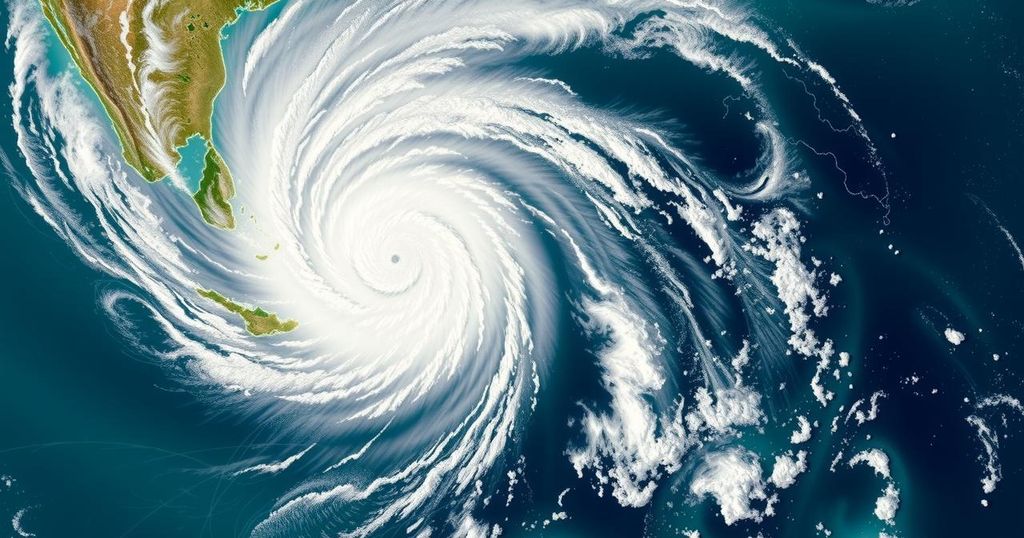Emergency Appeal for Tropical Cyclone Chido in the Southwest Indian Ocean

Tropical Cyclone Chido has caused significant destruction in the Southwest Indian Ocean, resulting in at least 142 confirmed deaths and impacting over 3,300 individuals. The cyclone formed on December 11, 2023, reaching Category 4 status, with substantial effects reported in Madagascar, Comoros, Mayotte, Mozambique, and Malawi. The situation underscores urgent challenges in disaster response and the need to enhance resilience in affected communities.
Tropical Cyclone Chido has proven to be the first cyclone of significant intensity to impact the Southwest Indian Ocean during the currently forecasted active cyclone season. On December 11, Chido escalated to a Category 4 tropical cyclone, with maximum sustained winds reaching 220 km/h and gusts of 250 km/h. By December 22, the cyclone had caused at least 142 confirmed fatalities, primarily in Mozambique, Mayotte, and Malawi, along with over 3,300 reported injuries.
Madagascar was the first nation to experience the severe effects of Chido, particularly in the Diana Region, where around 135,838 individuals were anticipated to be affected. The cyclone’s path led to substantial disruptions, including significant infrastructural damage and the displacement of numerous residents, compounded by heavy rains that resulted in widespread flooding and agricultural damage. The Malagasy government, in conjunction with the Malagasy Red Cross, took proactive measures including issuing warnings and evacuating at-risk communities.
Following the cyclone’s passage on December 14, the Comoros government declared a week of mourning for the victims. Chido affected over 64,167 individuals across the islands of Anjouan and Moheli, with families losing their homes and widespread damage to schools and agricultural land.
In Mayotte, the cyclone’s impact was dire, with roughly 70 percent of the population—approximately 230,000 individuals—experiencing significant disturbances. The destruction encompassed around 35,000 houses, alongside damage to essential services such as hospitals and airports, leaving about 100,000 individuals displaced and reliant on improvised accommodations lacking sufficient supplies.
In Mozambique, reports indicate that approximately 622,000 people were impacted, with Cabo Delgado suffering severe damage where 509,800 individuals were affected. The cyclone caused extensive destruction to more than 130,000 shelters, exacerbating existing vulnerabilities within these regions.
Malawi experienced the cyclone’s remnants, leaving nearly 45,000 individuals stranded and reinforcing the necessity for ongoing humanitarian assistance and disaster resilience initiatives.
Current reports are preliminary, as further assessments are underway to gauge the cyclone’s full impact on infrastructure and agriculture. The National Societies of the Red Cross and Red Crescent have activated emergency response teams to assist in search and rescue operations, first aid delivery, and family reunification efforts.
This emergency situation highlights the critical importance of preparedness, resilience, and the capacity to respond to severe weather occurrences. In response to the crisis, an Emergency Appeal has been initiated to mobilize resources for immediate humanitarian assistance and to bolster the preparedness of local communities throughout the remainder of the cyclone season.
The Southwest Indian Ocean has been experiencing an early and active cyclone season, with Tropical Cyclone Chido marking a significant event that caused widespread devastation. As the first intense cyclone of the season, Chido was forecasted to pose threats particularly to the Mascarene Islands, parts of Madagascar, and coastal Mozambique. The cyclone began to wreak havoc upon reaching its peak intensity in December 2023, leading to high casualties and extensive damage across the region, necessitating urgent humanitarian response efforts.
Tropical Cyclone Chido has had a catastrophic impact across several countries in the Southwest Indian Ocean, leading to a tragic loss of life and extensive destruction of infrastructure, homes, and livelihoods. The multifaceted humanitarian challenges necessitate a coordinated response to alleviate the suffering of affected populations, improve disaster preparedness, and enhance community resilience against future cyclones. Immediate aid, coupled with long-term support efforts, is essential to reconstruct and rehabilitate the impacted regions.
Original Source: reliefweb.int






